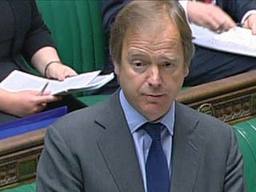The New Year started with yet another welcome affirmation from the British Government of the importance of the 54-nation Commonwealth.
Hugo Swire, who was appointed Minister of State for the Commonwealth last summer, published an Opinion in the Daily Telegraph in London on January 2 in which he said that the Commonwealth “is an important institution” that can “through dedication and reform become stronger and speak with a louder voice than ever before”.
This is the second time since his appointment that Minister Swire has published his positive view of the Commonwealth. In doing so, he is echoing the position of his predecessor, Lord Howell, who, with Prime Minister David Cameron and Foreign and Commonwealth Office Secretary, William Hague, was keen to assert Britain’s renewed interest in the Commonwealth from the time that the present Conservative-Liberal coalition government took office in May 2010.
What is pushing this renewed interest in the Commonwealth by the Conservative Party in particular? Part of the answer lies in a genuine belief in the global benefits of a respected and influential Commonwealth.
Another part resides in the increasing dissatisfaction with Britain’s membership of the European Union (EU) by leading members of the Conservative Party who have always deeply resented the extent of the EU’s jurisdiction over matters they felt should have remained directly under London’s control.
Among these matters are: justice and home affairs, and the financial services sector. There is also deep annoyance that Britain is required to contribute to bail-outs of countries in the Eurozone even though Britain is not a member of the single currency.
A further clue to the insistent voices in the Conservative Party that Britain should hold a referendum on the European question and so offer the British people the chance of untying themselves from the EU, is trade.
For example, Daniel Hannan, a Conservative Member of the European Parliament, wrote in the same edition of the Daily Telegraph as did Hugo Swire, that “the EU’s share of our (Britain’s) trade is falling by the minute.
British exports to the EU fell by 7.3 per cent in the past three months for which we have data, while exports to the rest of the world rose by 13.2 per cent”. He argues that the EU is “increasingly just one market”.
But, the EU is still the largest single market for Britain’s exports accounting for over 40 per cent of its total.
Further, at a time of austerity in the majority of countries in Europe, weakening of purchasing power should be expected.
This has tossed up the argument that Britain should be looking to the Commonwealth of Nations for trading opportunities. While it has not been baldly stated, the underlying narrative in this argument is that Britain will be able to expand trade in Commonwealth countries to its advantage while freeing itself from the EU.
Thus, contained in Minister Swire’s Opinion in the Telegraph are two assertions: “trade in the Commonwealth is booming, with member states collectively exporting more than £1.5 (US $2.4) trillion of goods and services each year”; and “today’s Commonwealth contains at least seven of the fastest-growing countries, with ballooning new markets. Hitherto, the stars have been mostly in Asia but African states are coming up fast, Ghana, Tanzania, Mozambique are examples”.
It is a shame that these two concepts have become interlinked however unintentionally. Increased trade with Commonwealth countries is perfectly possible for Britain. It does not have to shed itself of Europe for that to happen.
Curiously, it was this same consideration of expanded trade that, in part, convinced British successive governments in the late 1950s and afterwards that Britain was better off in a relationship with its European neighbours than it was with the Commonwealth.
Seeing very few opportunities for expansion of British trade in the Commonwealth, the then European Economic Community became attractive. By the 1960’s British trade with the Commonwealth was stagnant, and in the early 1970s, Britain joined the European Economic Community, calculating that its economic interests were in Europe.
In any event, there is a fallacy in linking all the Commonwealth countries to the increase in Commonwealth trade. Only six Commonwealth countries accounted for 84 per cent of Commonwealth trade in 2011.
Those countries were: Singapore, India, Malaysia, Australia, Britain and Canada, It is certainly true that the economies of other Commonwealth countries – many in Africa – are performing better than they have in the past. But, they will require considerable investment if they are to be genuine partners in two-way trade and not just new markets.
The Commonwealth can be helpful to increased trade, not only for Britain, but for many others of its member states. The association is a ready-made network of past and present connections, of common language (mostly), common laws, and a shared history that makes conducting business easier than it would be in countries with different laws and different languages.
However, ambitions for increased Commonwealth trade should be seen for what they are: opportunities for countries which have the vital transportation links to each other or services that are required elsewhere in the Commonwealth.
Some Commonwealth countries will be able to take advantage of those opportunities because they already have the capacity; many others will not and they will remain at the margins of increased trade unless there is investment in their infrastructural development, their productive sectors and their knowledge.
The Commonwealth can help to promote trade and investment among its member states – something the Commonwealth Business Council (CBC), headquartered in London, was set-up to do.
In 2013, it would be beneficial if the Commonwealth countries that are now the principal beneficiaries of Commonwealth trade were to invest in a rejuvenated, refocused and functional CBC – working closely with the Commonwealth Secretariat – so that it could bring more Commonwealth countries into the gains of increased trade.
(The writer is a Consultant and Visiting Fellow, London University)
Responses and previous commentaries: www.sirronaldsanders.com




